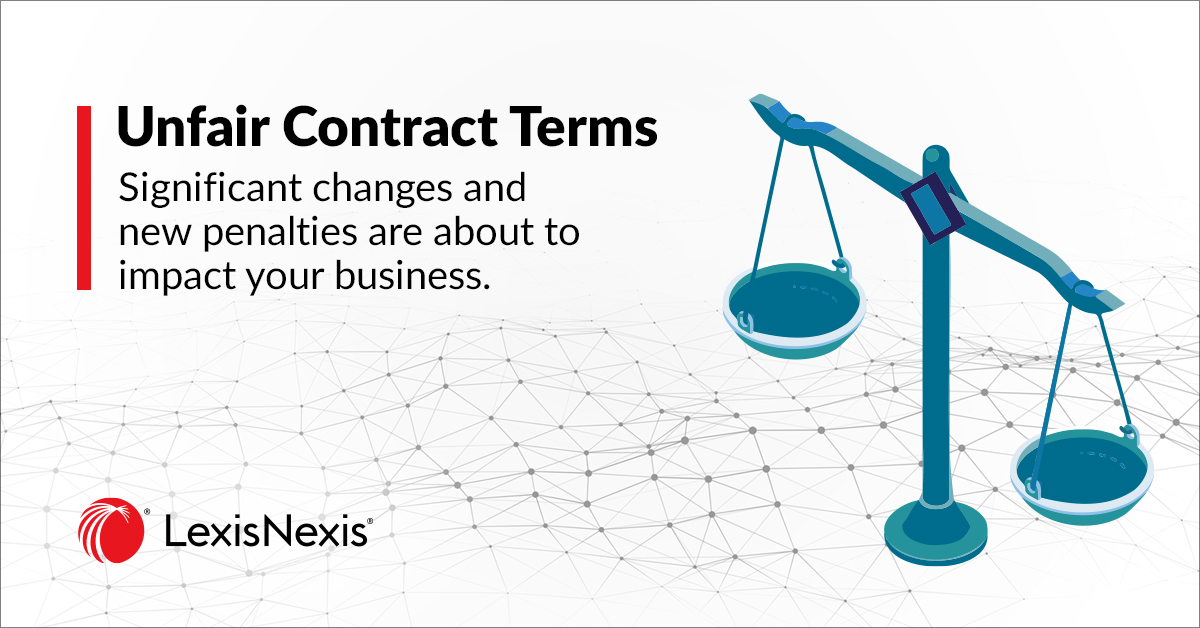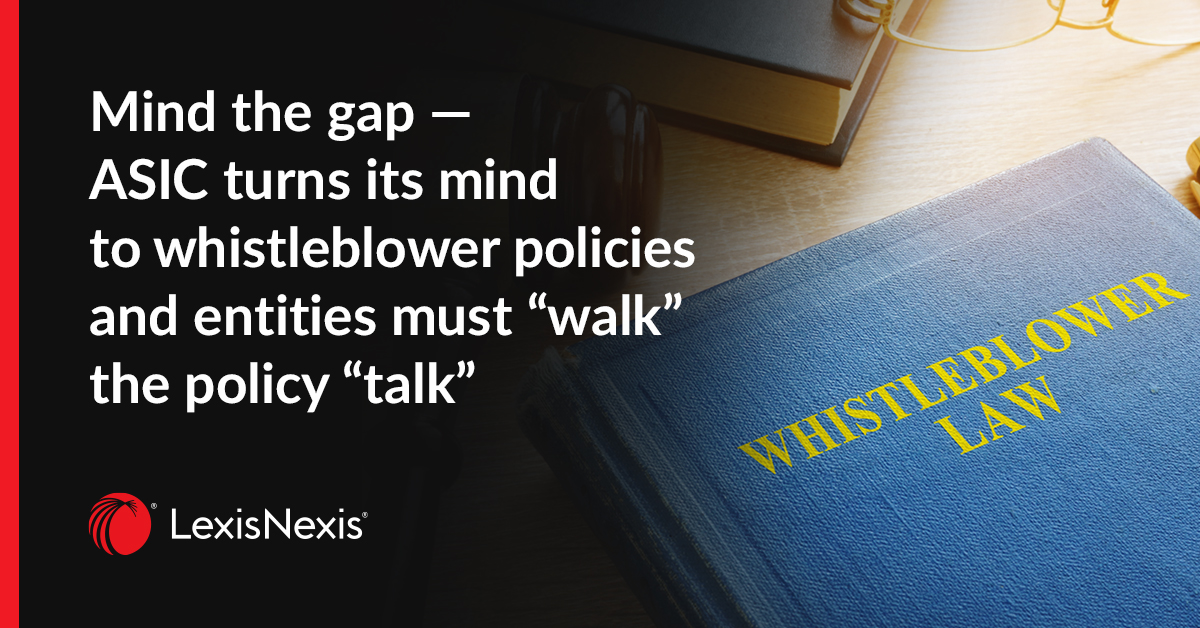
Unfair dismissal: A “line in the sand” must not be discretionary (Michael Hudson v Metcash Trading Ltd [2021] FWC 2765)
10 November 2022 08:00
Yoness Blackmore – Senior Legal Writer, LexisNexis Practical Guidance Employment
Mr Hudson was employed as a forklift driver by Metcash Trading Ltd (Metcash) for 23 years.
He was dismissed after using his mobile phone in a high-risk area in contravention of a Metcash policy. However, Mr Hudson was reinstated by the Fair Work Commission as the policy did not support this “zero tolerance approach”.
This is a lesson for employers to pay attention to policy drafting to ensure the policy provides a sound basis for dismissal in the event of non-compliance. Otherwise, the Fair Work Commission may find that the dismissal for non-compliance is an unfair dismissal under Pt 3-2 of the Fair Work Act 2009 (Cth).
No mobile phone use permitted
Mr Hudson’s employment was terminated with immediate effect for serious misconduct following his use of a mobile phone while operating a forklift in a “high risk” warehouse aisle area.
Metcash argued it had drawn “a line in the sand” regarding mobile use and this reflected a general cultural change in improving its work health and safety.
Supporting this, Metcash had a policy in place prohibiting mobile use and Mr Hudson was aware of this and he had attended Toolbox Training informing him of it.
The policy provided for discretionary outcomes for non-compliance. For example, “may result in disciplinary action” and “up to and including termination of employment (or engagement)”.
Was this a valid reason for this dismissal?
The Fair Work Commission confirmed that dismissing an employee for a safety breach was a valid reason for dismissal.
However, while the reason was valid, the Fair Work Commission decided the outcome was disproportionate and unfair in these circumstances.
Metcash described its approach as being “a line in the sand” regarding mobile use.
However, its policy demonstrated that disciplinary outcomes did not compel dismissal and dismissal was only one of a range of outcomes. It was not a “zero tolerance policy” and it was not communicated on that basis.
Metcash was required to consider all relevant circumstances before taking such action.
Commissioner Harper-Greenwell said that Mr Hudson had 23 years’ service. He had no disciplinary issues and a clean safety record. He was an honest person and was a dedicated and loyal employee. Mr Hudson did not attempt to hide the fact that he had taken a phone call in breach of the PED Protocol, he apologised for his actions, was clearly and genuinely remorseful, and provided reasons for his momentary lapse of judgement which had been affected by the surrounding circumstances and impacted by the COVID-19 pandemic. Although Mr Hudson did not need to repair his vehicle that day, the ongoing delays in repairing the vehicle would have placed him at a greater risk of an unplanned breakdown of the vehicle which would be likely to affect his ability to get to work.
Commissioner Harper-Greenwell acknowledged it was not the Commission’s place to step into the shoes of an employer and determine what an employer should have done in a particular situation. However, based on the circumstances it was his conclusion that it was open to Metcash to issue Mr Hudson a first and final warning and this would have been a proportionate outcome in the circumstances.
According to Commissioner Harper-Greenwell, the dismissal was disproportionate and overly harsh.
Reinstatement
Commissioner Harper-Greenwell concluded that it was appropriate to reinstate Mr Hudson.
He had a clean safety record and there was no evidence of non-compliance at any other time in 23 years of service. Evidence demonstrated that he was loyal and truthful. Mr Hudson had given a commitment to comply to policies going forward. Mr Hudson’s behaviour during the process did not demonstrate a breakdown in the relationship. His re-employment would not create a safety risk and would not undermine the safety policy.
What to do to avoid unfair dismissal
Employers must ensure that policies are drafted to support the employer’s response for breaches. Regular training must be provided to employees (and other workers) and the policy must be consistently enforced.
If a policy or procedure is to be zero-tolerance, the policy should expressly state that and not provide management with discretion in deciding the disciplinary outcome.
Zero tolerance is generally only applied in circumstances where employers are addressing serious work health and safety risks (eg, drug and alcohol policies on work sites) or serious misconduct (eg, sexual harassment etc).
Even where a policy states that an employee will be dismissed for a single breach, the Fair Work Commission will make its own assessment as to whether the decision was unfair. For example, it will consider the proportionality of the dismissal in the circumstances, whether training was provided in the policy and whether the policy had been consistently applied. The Fair Work Commission will also assess whether the employer has provided procedural fairness, including by proper inquiry and providing an opportunity for the employee to respond.
For employees, this case demonstrates that in circumstances of policy breach it is likely to be in an employee’s best interests to apologise, provide a cogent reason for the breach (eg, unaware of policy or outcome or other reason) and make a clear commitment to comply with the relevant policy going forward. Even if dismissed, this will support arguments of unfairness and also for reinstatement orders.
Read the full text of the Fair Work Commission’s judgment here: Michael Hudson v Metcash Trading Ltd [2021] FWC 2765
Latest Articles
-
 3 tips for banking and finance lawyers when responding to an ASIC enquiry, and how to avoid misleading or deceptive conduct.
3 tips for banking and finance lawyers when responding to an ASIC enquiry, and how to avoid misleading or deceptive conduct. -
 Significant increases to competition and consumer law penalties have commenced and sweeping reforms to the unfair contract terms regime will follow in 12 months’ time.
Significant increases to competition and consumer law penalties have commenced and sweeping reforms to the unfair contract terms regime will follow in 12 months’ time. -
 The Australian Securities and Investments Commission (ASIC) is calling on Australian CEOs, from public companies, large proprietary companies and corporate superannuation trustees to review their whistleblower policies and processes to ensure compliance with private sector whistleblower laws.
The Australian Securities and Investments Commission (ASIC) is calling on Australian CEOs, from public companies, large proprietary companies and corporate superannuation trustees to review their whistleblower policies and processes to ensure compliance with private sector whistleblower laws.
Practical Guidance
Your one-stop solution for accurate legal answers from Australian legal experts. Tools, practically focused guidance notes, checklists, precedents, and training materials support and streamline your legal workflow.
LEARN MORE LexisNexis
LexisNexis